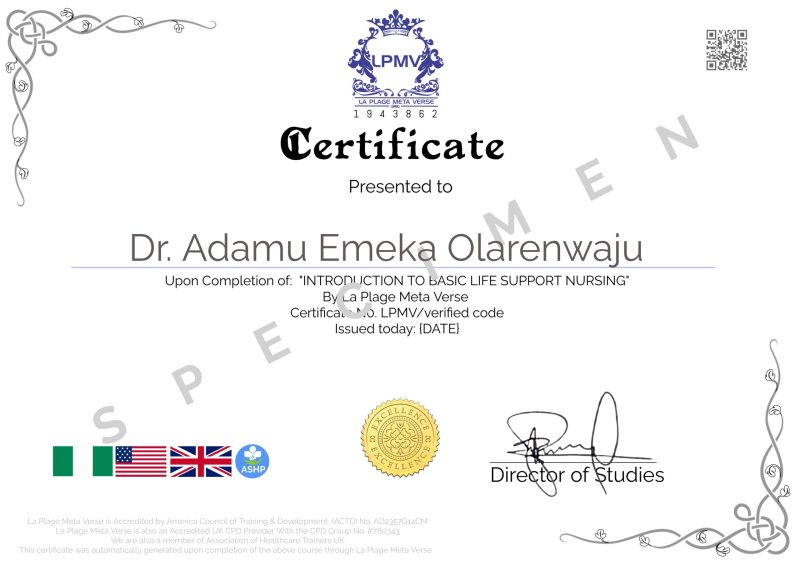Course Overview
“Artificial Intelligence in Education” is a cutting-edge course that explores the integration of AI technology into educational settings. This course is designed to provide students with a comprehensive understanding of how AI can revolutionize and enhance various aspects of the learning process.
Throughout the course, students delve into the fundamental concepts of artificial intelligence, machine learning, natural language processing, and data analytics as they apply to educational contexts. They also explore the ethical considerations and challenges surrounding the implementation of AI in classrooms and learning platforms.
What you will Learn
- Fundamental concepts of artificial intelligence (AI) and its applications in education
- Introduction to machine learning and its relevance to personalized learning
- Understanding natural language processing (NLP) and its role in educational content analysis
- Exploring data analytics and its use in optimizing educational processes
- Ethical considerations and challenges related to AI adoption in educational settings
- How AI can enhance personalized learning experiences for students
- Intelligent tutoring systems and their benefits in providing tailored support to learners
- Adaptive assessments and their role in evaluating individual student progress
- AI-driven content creation and its potential to generate custom learning materials
- Virtual learning environments and immersive educational experiences through AI
- Hands-on experience with AI tools and platforms used in education
- Designing, implementing, and evaluating AI-powered educational solutions
- Collaborative AI in group learning scenarios and virtual classrooms
- Addressing bias and fairness issues in AI algorithms for education
- Strategies for integrating AI into existing educational systems and practices
- Current trends and future possibilities in AI-enhanced education.
Who Should Learn
The course “Artificial Intelligence in Education” is suitable for the following individuals:
- Educators and Teachers: To enhance their understanding of AI’s potential in transforming the learning process and developing personalized learning experiences for students.
- Educational Administrators: To explore how AI can be integrated into educational institutions to improve administrative efficiency and student outcomes.
- EdTech Developers: To gain insights into the application of AI in educational technology and create innovative AI-powered tools for educators and learners.
- Curriculum Designers: To learn how AI can be used to tailor curriculum and educational content to meet individual student needs.
- Data Analysts and Researchers: To understand how data-driven AI solutions can be utilized to analyze and optimize educational processes and outcomes.
- Policy Makers and Regulators: To grasp the ethical implications and policy considerations related to the use of AI in education.
- Students and Learners: To get a glimpse of how AI can enhance their own learning experiences and shape the future of education.
- Education Technology Enthusiasts: To explore the latest trends and advancements in the intersection of AI and education.
Career Opportunities
Completing the course “Artificial Intelligence in Education” can open up various career opportunities, including:
- AI in Education Specialist: Working directly with educational institutions to implement AI-driven solutions that enhance learning experiences and academic outcomes.
- EdTech Product Developer: Designing and building AI-powered educational technology tools and platforms for use in schools and online learning environments.
- Learning Experience Designer: Creating personalized and adaptive learning experiences using AI algorithms and data analysis.
- Educational Data Analyst: Analyzing student data and educational processes to derive insights and optimize teaching methods with AI.
- Curriculum and Instructional Designer: Integrating AI into curriculum design to create customized learning pathways for students.
- Virtual Learning Environment Designer: Developing virtual classrooms and immersive educational experiences using AI technologies.
- Educational Policy Analyst: Evaluating the ethical and societal impact of AI in education and contributing to the development of educational policies.
- AI Researcher in Education: Conducting research to advance the field of AI in education, developing new algorithms, and exploring innovative applications.
- Education Consultant: Advising educational institutions on the adoption and implementation of AI technologies to improve teaching and learning.
- Adaptive Assessment Specialist: Designing AI-driven assessments that adapt to students’ individual abilities and learning progress.
- Online Course Content Developer: Creating AI-generated and interactive educational content for online learning platforms.
- Education Technology Entrepreneur: Founding start-ups that focus on AI-based solutions for educational challenges.
- AI Curriculum Trainer: Training teachers and educators on the effective use of AI technologies in the classroom.
Prerequisites
This course does not require participants to have a specific entry requirement. Those who are interested can sign up.
Course Duration & Online Support
Duration depends on the learner’s ability to cope with the pace and scope of the course. Self-study allows participants to complete the course at their own pace. Support extensions are also available if students fail to do so within that period.
Assessment
To successfully complete the course, students are required to complete various tests and assessments. You may be required to get a link from our Training Provider. Your test will be reviewed and graded by our system. You may attempt only twice.
Get a Completion Certificate.
La Plage Meta Verse is an Accredited CPD Provider. Upon successful completion of the course, students will be able to gain an international Accredited Certificate. Share your certificate with prospective employers and your professional network on all social media platforms.

